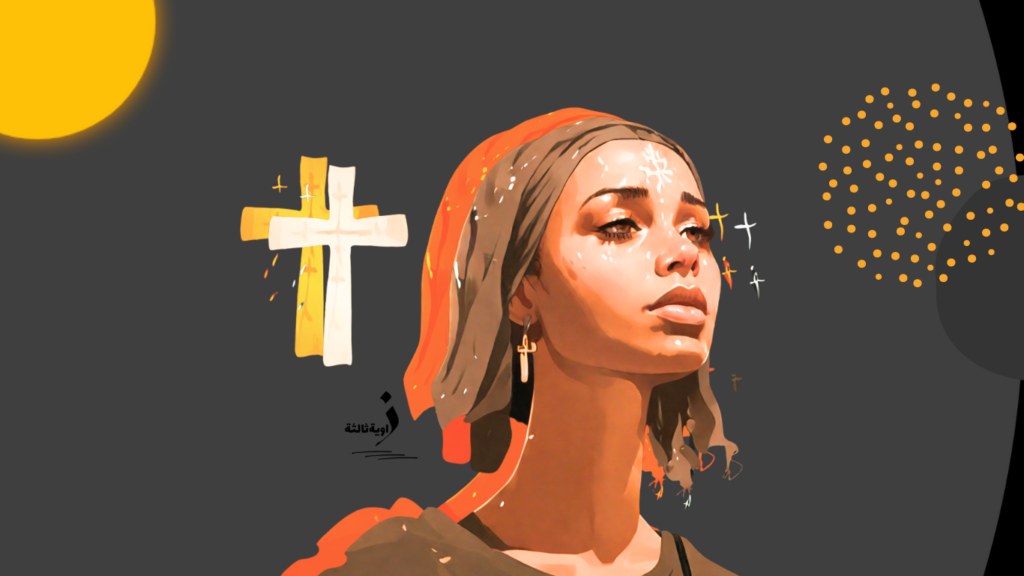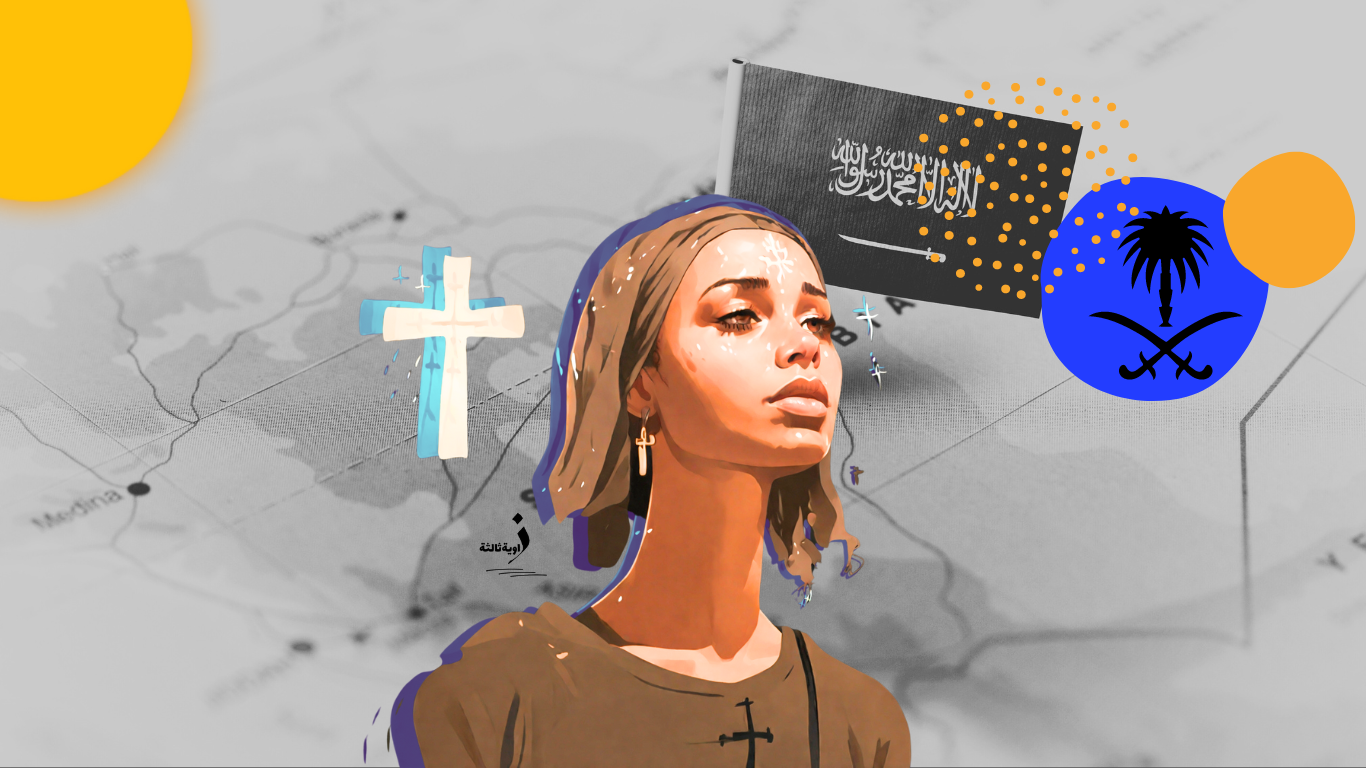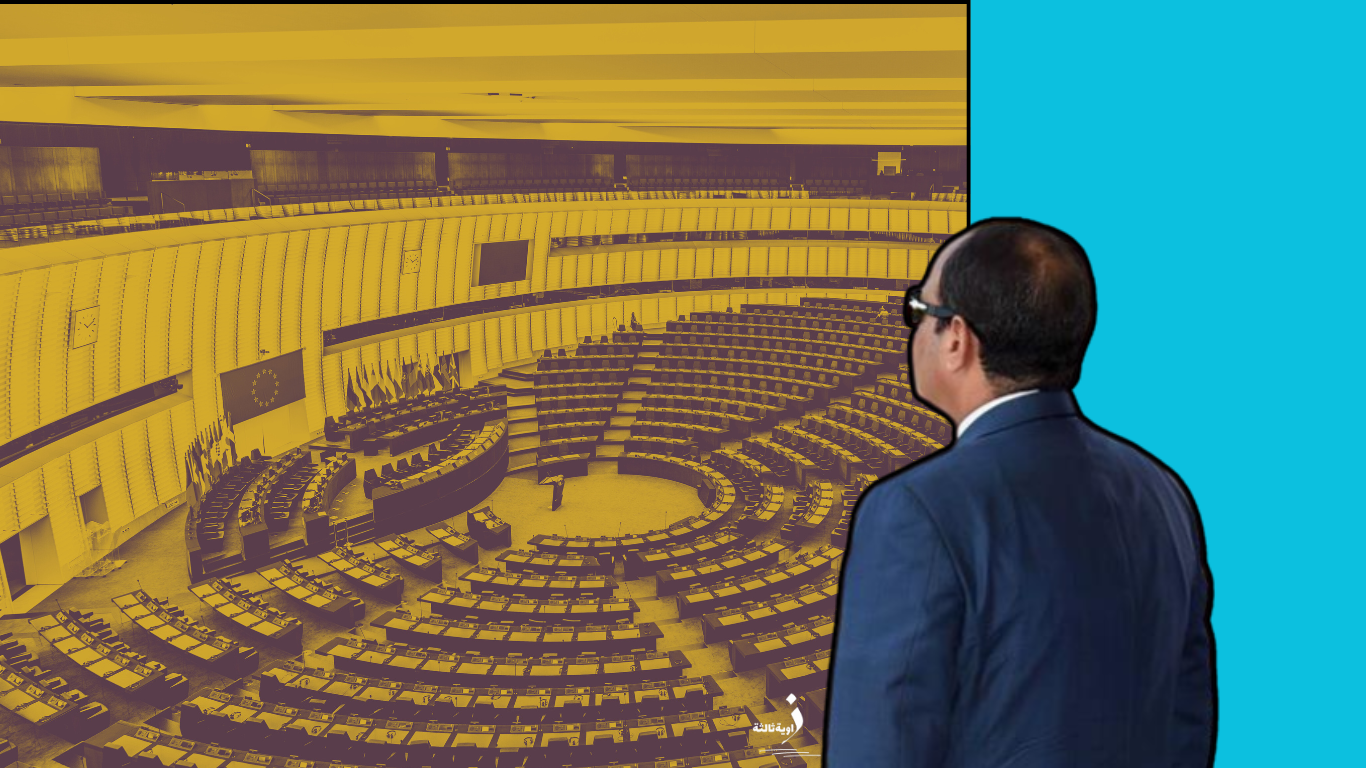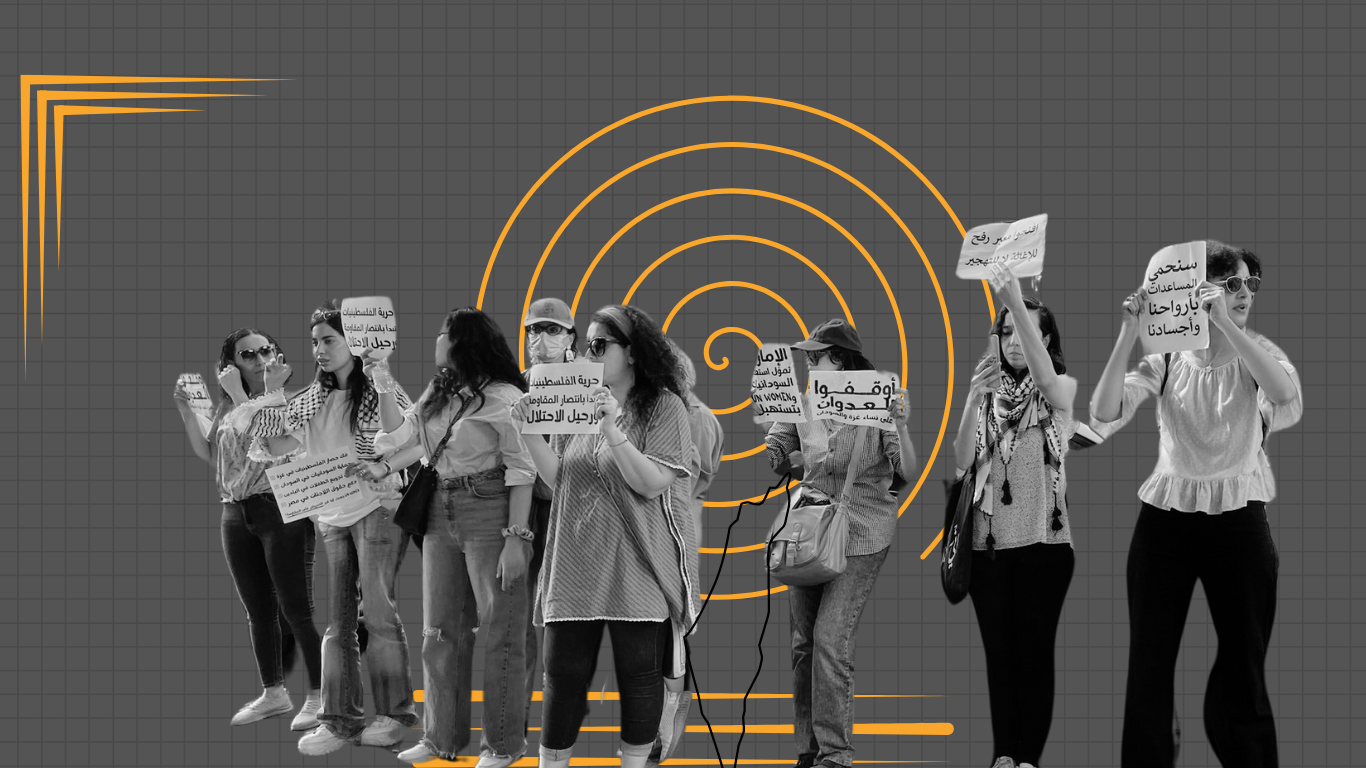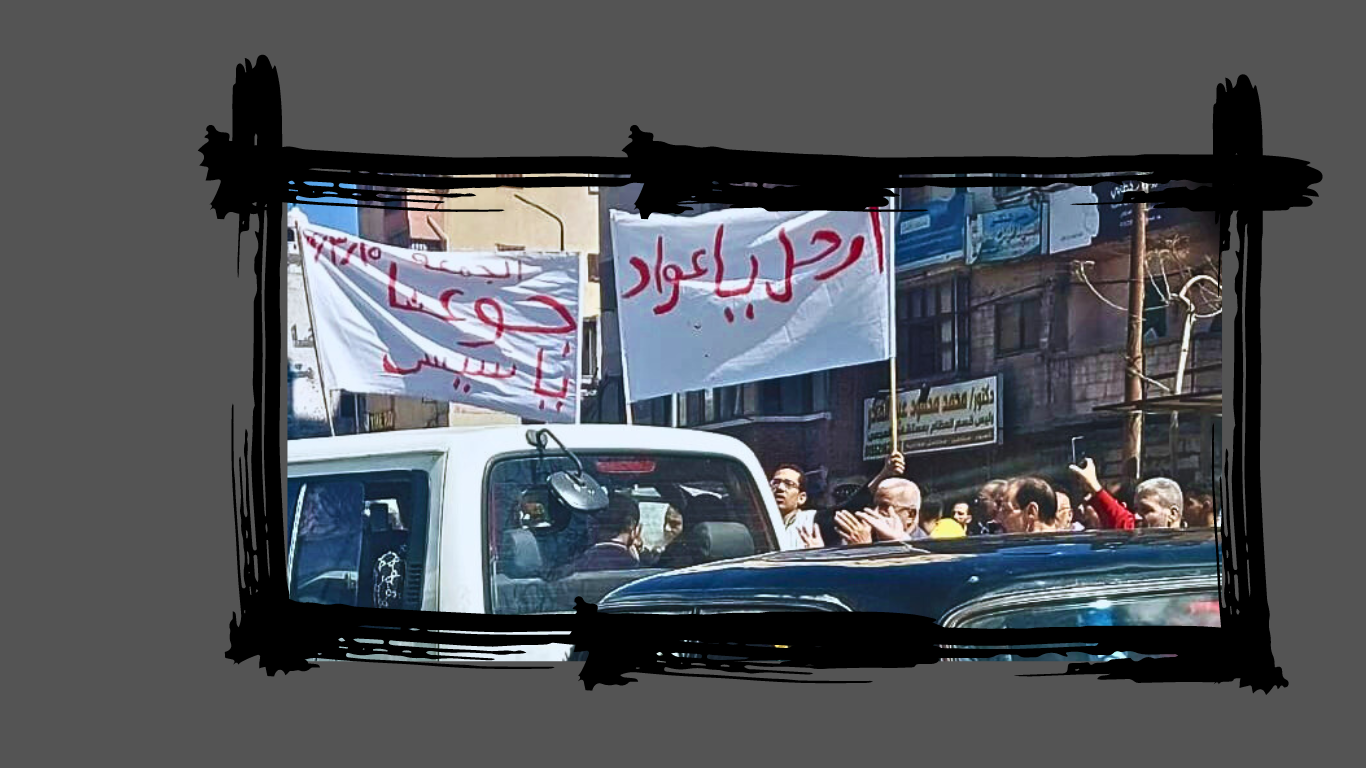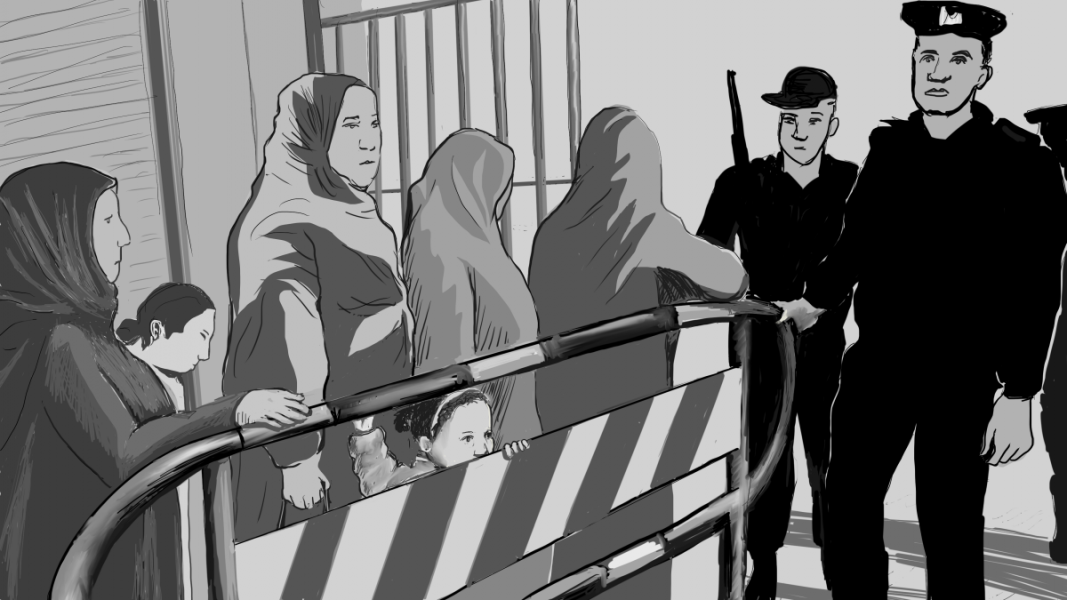“I was able to gain custody of my child, but I couldn’t obtain financial support from my husband who disappeared eight years ago, and I know nothing about him. I feel like my life is on hold or over, being a Christian, I cannot divorce and start a new life,” says Nancy, who described her husband as abusive.
Nancy has lost hope in the possibility of divorce to start a new life with another partner, as the church only allows divorce in cases of adultery. This rule was enforced by the late Pope Shenouda III in 2008 through the amendments to Article 38 in the regulations governing personal affairs for Orthodox Christians, approved by the Holy Synod on May 9, 1938.
According to the amendments, articles 52, 53, 54, 55, 56, and 57 were repealed, which allowed divorce if one spouse was absent for five consecutive years without knowledge of their life or whereabouts, if one spouse was sentenced to hard labor, imprisonment, or confinement for seven years or more, if one spouse was afflicted with incurable insanity or a contagious disease that threatened the other’s safety, or if one spouse attacked the other’s life or habitually caused serious harm. Divorce was also permitted in cases of severe misconduct, corruption of morals, or neglect of duties, leading to three consecutive years of estrangement, or if the spouses intimidated each other.
After the incident, Nancy returned, with her infant, to her family’s home in anger, spending about three years without her husband attempting reconciliation. When she returned to the marital home to retrieve some belongings and legal documents for her son, she was surprised to find her husband assaulting her again, forcibly taking the child and evicting her from the apartment. She remained deprived of seeing her son for six months until a court ruled in her favor to have custody, but eight years have passed without any financial support or communication from her husband. Nancy wishes for a law allowing her and other suspended Christian women to divorce or seek separation.
Contemplating suicide, Marina has been living with her son at her family’s home for two years due to the impossibility of a relationship with her husband, who insulted and physically abused her. She is considering suicide out of despair from divorce and the inability to obtain a conversion certificate due to the lack of funds to pay for it.
After Marina successfully obtained a court order for alimony for her and her son, her husband’s lawyer bombarded her with obedience warnings. He started bargaining between relinquishing the frozen alimony and legal issues and reaching a settlement, but she no longer trusted him after he seized her furniture and refused to let her even have her clothes. He stopped inquiring about her and their child two years ago.
Meanwhile, Viola suffers from emotional neglect and abandonment by her husband in their marital bed for over a year. He no longer desires intimacy, does not share the same room, and avoids conversation. They have become like strangers under the same roof, but they cannot divorce as they are Orthodox Christians.
Viola says she endured nine years of emotional drought, her husband’s sexual weakness, and his refusal to seek treatment for his premature ejaculation. When the situation escalated to a complete rejection of marital relations, and she suggested seeking the advice of a marriage counselor or a psychologist, he vehemently refused. Due to emotional and sexual deprivation, she confided in the church priest, who spoke to her husband but received no response. Doubts about his infidelity haunted her, but she found no concrete evidence, and she felt her psyche and femininity shattering.
Stuck on the Church Wall
Azza Soliman, who co-founded the Centre for Egyptian Women’s Legal Assistance (CEWLA) believes that the state has sold Christians to the church, which has significantly tightened its grip on their lives. She argues that the crisis of Christian divorces began when Pope Shenouda III assumed the position of Pope, succeeding Pope Cyril, who delegated the Military Council to handle the personal status affairs of Orthodox Christians, mostly consisting of secular individuals. However, during Pope Shenouda’s reign, religious figures took control of the council and gradually restricted divorce through amendments to the 1938 regulations. Soliman criticizes these amendments for being conservative regarding divorce and failing to help those seeking to escape miserable lives.
Until then, the door to religious conversion was still open, and many resorted to it to obtain a divorce. Some even changed their religion for the sake of divorce and later wanted to return to Christianity, leading to what is known as the “Stuck on the Church Wall” cases, which opened the door to sectarian strife. Soliman adds, in her statement to Zawia3, that some abused Christian wives exhausted their efforts with the church and the police, with neither offering protection from violence. This forced them to flee and hide, later falsely accused by their families of being kidnapped. She holds the state responsible for such incidents, arguing that it does not prioritize women and family issues, considering that allowing civil marriage and divorce in Egypt would solve the problems of Christian divorces, given the absence of a new law for the personal status of Christians, which has been awaited for years without materializing.
The human rights lawyer points out that the closure of the door to religious conversion led some to obtain certificates of religious conversion from Lebanon and Cyprus, giving rise to a mafia for these certificates. She explains that the judiciary limits Christian divorce cases under the pretext of preserving the Egyptian family. There is an unspoken agreement not to enforce the 1938 regulations in court rulings, leading to the loss of divorce lawsuits for Christian women despite their religious conversion.
Pope Tawadros II, the Pope of Alexandria and Patriarch of the See of St. Mark, described changing religion and sect for divorce as playing with religious affiliation in a 2014 television interview on the personal status of Christian Copts. Meanwhile, in 2019, Pastor Andre Zaki, head of the Evangelical community, announced that his church does not provide answers for religious conversion, and all responses sent to the court are forged and challenged.
Judicial Discretionary Power
Lawyer Hebba Adel from the Egyptian Women Lawyers’ Initiative for Women’s Rights affirms that many Christian women in Egypt are adversely affected by the restrictions imposed on marital relationships and the church’s tightening control on attempts to break free from them. This situation is characterized by intensity and obstinacy, leading some to try to circumvent church regulations by obtaining a certificate of religious conversion. “Often obtained illegally for exorbitant fees, exposing them to the dangers of fraud and forgery,” she notes. Adel points out that the law stipulates resorting to Islamic law in case of sectarian differences, leaving discretionary power to judges. However, judges usually refuse to issue divorce judgments for Christians because certificates of religious conversion are issued outside Egypt, making it difficult to verify their authenticity, rendering divorce nearly impossible.
Adel believes that civil marriage and divorce could be a solution to the problem, transforming the relationship from compulsory to optional to mitigate future disasters. She emphasizes that most of the rights denied to the affected individuals are civil rights related to financial support, freedom of divorce, and marriage. Adel insists on the necessity of enacting a law for the personal status of Coptic Christians, offering partial solutions to the existing problems. This requires a serious dialogue to address the ongoing conflict between legal authority and the church authority, fearing restrictions on their right to impose religious penalties.
According to the annual report on marriage and divorce statistics issued by the Central Agency for Public Mobilization and Statistics in 2016, the Orthodox Christians witnessed 32,414 divorce cases, accounting for 3.5% of the total divorce cases in Egypt. On the other hand, the Evangelical community had only 500 cases, representing 0.1%, while other Christian denominations recorded 1,232 cases, also constituting 0.1%.
Official statistics on divorce cases among Copts in Egyptian courts are not available. However, according to the book “Coptic Divorce” by Egyptian writer and journalist Karima Kamal, published in 2006, about 300,000 Coptic couples have resorted to Egyptian courts since 1971 to obtain divorces.
The Center for Egyptian Women’s Issues recorded 1,449 divorce cases in Cairo between 1999 and 2004. In Luxor, 35 divorce cases were documented for reasons such as aversion, adultery, and abandonment, along with 51 cases objecting to obedience warnings. In Assiut alone, where Copts constitute approximately 25 to 30% of the population, the center documented 1,002 divorce cases based on the dissolution or annulment of contracts in the courts. Among them, 55 cases were due to the conversion of one of the spouses, covering the period from 1999 to 2004.
The Crisis Initiated by the Holy Synod
Ishak Ibrahim, the official responsible for religious freedom and belief at the Egyptian Initiative for Personal Rights, told Zawia3 that the legislative sources for the personal status of Christians trace back to the laws of Ibn al-‘Asal. These laws included various reasons for divorce, such as adultery, impossibility of cohabitation, and one spouse assaulting the other. Later, in 1938, a set of regulations was established, defining nine reasons for divorce. However, Pope Shenouda was not convinced by these regulations; he restricted them to adultery, religious conversion, and annulled second marriages for those who obtained divorce judgments. He emphasized that in family cases related to Christians, their specific regulations are applied, given the existence of 12 sects in Egypt. In cases of religious differences, Islamic law is invoked, leading to the emergence of a market for certificates of religious conversion. Consequently, church leaders refused to issue these certificates, describing the current situation as “unconstitutional and inhumane.” According to Ibrahim, Christians forming families face eternal punishment, considering it the state’s responsibility to provide alternatives to avoid serious societal problems, such as spouses resorting to killing each other or falsely accusing each other of adultery.
Additionally, the Coptic heritage researcher, Shenouda El Amir, revealed that books like “Didascalia” or “Discalia” and others dating from the 10th to the 14th century, such as the laws of Pope Gabriel ibn Turayk and the laws of Ibn al-‘Asal, regulated the religious and social lives of Christians when there were no laws associated with the Holy Scriptures. These writings closely align with the 1938 regulations. Ibn al-‘Asal’s rules covered adultery, religious conversion, rebellion, life imprisonment, exile, and involved appointing a representative from each spouse’s family and a priest to resolve marital disputes.
El Amir considered that the divorce crisis in Egyptian Christianity began with the restrictions imposed by the Holy Synod in 1979 on permissible divorce cases, leading to amendments in 2008. He called for more flexibility in family laws to suit the post-modern era.
Certificate in Exchange for Donation to the Church
Dr. Nabil Gabriel, a lawyer in the Court of Cassation and the Supreme Constitutional Court, specializing in criminal law, believes that the crisis stems from the application of the 1938 regulations when the state amended the procedural law, leading to the abolition of the Cassation Court in personal status cases. This resulted in conflicting judgments at the first instance and the appellate court. Gabriel explained that marital disputes, physical assault by one spouse on the other, or causing harm to either of them are not grounds for divorce in Christianity. There is no divorce for Catholics, and for the Orthodox, adultery is the sole reason. However, there is a significant difference between criminal adultery in the penal code and legal adultery mentioned in the 2008 amendment, which includes explicit images, WhatsApp conversations, and phone calls where one spouse betrays the other. This allows one party to record them without the court’s permission. Some courts confuse criminal adultery in the penal code with legal adultery in the amended 1938 regulations.
Gabriel, speaking to Zawia3, suggested the existence of a “mafia” dealing in certificates of religious conversion for those seeking divorce among Orthodox Christians. Exploiting citizens’ lack of awareness and an agreement between the Orthodox and Syrian Orthodox churches, individuals prioritize obtaining divorce by sending their cases to the latter. In return, they donate eight thousand pounds to the other church. With the certificate, the couple can then obtain a divorce ruling, and the Christian wife can file for separation under Islamic law, where the Christian husband issues a unilateral divorce in an Islamic manner. However, some courts refuse to grant divorces and violate Regulation 38 due to insufficient knowledge of the law and its applications.
Several Egyptian Christian women struggle to obtain civil divorces, but legislators rejected the existence of civil divorce without resorting to the three main churches in Egypt. In 2021, the Family Law for Christians addressed the issue of divorce and separation. It was agreed that each sect would regulate the issue of divorce independently. The Orthodox Church broadened the concept of legal adultery to include phone calls, electronic correspondence, incitement to prostitution, wife-swapping, and homosexuality. The Evangelical Church limited divorce reasons to religious conversion and adultery. The Catholic Church rejected divorce altogether and only allowed physical separation.

